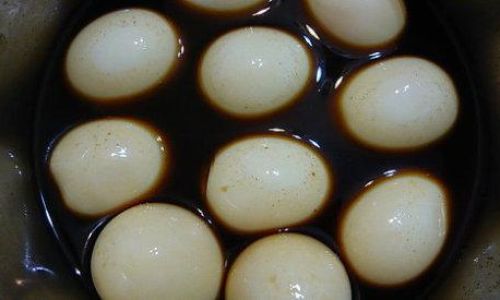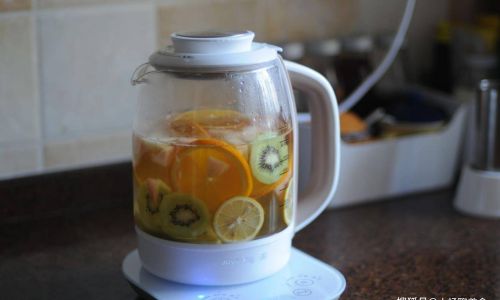Introduction
Eggs are a nutritional powerhouse, packed with proteins, essential fats, vitamins, and minerals that support a baby’s growth and development. For parents introducing solids, knowing how to prepare eggs safely is paramount. One of the most common questions is: How long should eggs be boiled to ensure they are cooked thoroughly yet retain their nutritional value? This article delves into the science of boiling eggs for babies, exploring cooking times, safety tips, and expert-recommended practices to make mealtime both nutritious and risk-free.

Why Eggs Are Ideal for Babies
Eggs are a recommended first food due to their soft texture (when properly cooked) and high nutrient density. A single egg contains:
- 6 grams of protein: Essential for muscle and tissue development.
- Choline: Supports brain health and cognitive function.
- Vitamins A, D, and B12: Aid in immunity, bone development, and energy metabolism.
- Iron and zinc: Critical for preventing anemia and supporting immune function.
However, eggs also carry a risk of Salmonella contamination, which can cause foodborne illness. This makes proper cooking techniques non-negotiable, especially for infants with developing immune systems.
The Science of Boiling Eggs: Understanding Cooking Times
The ideal boiling time for eggs depends on the baby’s age, chewing ability, and risk tolerance. Below is a breakdown of cooking methods and times:
-
Soft-Boiled Eggs (6–7 minutes)
- Texture: Runny yolk, semi-solid white.
- Risk: Higher chance of bacterial survival.
- Recommendation: Avoid for babies under 12 months due to salmonella concerns.
-
Medium-Boiled Eggs (8–10 minutes)
- Texture: Creamy yolk, firm white.
- Risk: Reduced but not eliminated.
- Recommendation: Suitable for babies over 12 months with pediatrician approval.
-
Hard-Boiled Eggs (12–14 minutes)
- Texture: Fully solid yolk and white.
- Risk: Minimal bacterial presence.
- Recommendation: Safest option for infants and toddlers.
Step-by-Step Guide to Boiling Eggs for Babies

Selecting Fresh Eggs
- Choose eggs with intact shells and a “best-by” date within one month.
- Avoid eggs with cracks or dirty shells, as they are more prone to contamination.
Preparing the Pot
- Use a medium saucepan and place eggs in a single layer.
- Add cold water to cover eggs by 1 inch (2.5 cm).
Boiling Method
- Cold-Start Method:
- Bring water to a rolling boil over high heat.
- Once boiling, reduce heat to medium-low and start timing.
- Hot-Start Method:
Place eggs in already boiling water, then reduce heat to a simmer.
Timing Guidelines
- For 6-month-olds: 12 minutes (hard-boiled).
- For 9-month-olds: 10 minutes (medium-boiled, if pediatrician approves).
- For 12-month-olds: 8 minutes (soft-boiled, with caution).
Cooling and Peeling
- Immediately transfer boiled eggs to an ice bath for 5 minutes to halt cooking.
- Gently tap the shell on a hard surface and peel under running water to remove fragments.
Safety Precautions for Baby-Led Weaning

- Avoid Runny Yolks: Salmonella bacteria thrive in undercooked eggs.
- Mash or Chop: For babies under 1, mash the egg white and yolk to a paste-like consistency to prevent choking.
- Avoid Honey or Salt: Do not season baby’s eggs with these ingredients before 12 months.
- Check for Allergies: Introduce eggs in small amounts and monitor for hives, vomiting, or diarrhea.
Nutritional Considerations: Yolk vs. White
- Yolk: Contains fat-soluble vitamins (A, D, E), choline, and iron.
- White: Rich in protein and selenium.
For babies, feeding the entire egg (yolk and white) is ideal, as long as it’s properly cooked. Avoid egg whites alone before 12 months, as they are a common allergen.
Altitude Adjustments
At high elevations (above 3,000 feet), water boils at lower temperatures, which can affect cooking times. Add 1–2 minutes to the boiling time to ensure eggs are fully cooked.
Storing and Reheating Boiled Eggs
- Refrigeration: Store peeled or unpeeled hard-boiled eggs in an airtight container for up to 7 days.
- Freezing: Not recommended, as cooked egg whites become rubbery.
- Reheating: Warm gently in a water bath or microwave (30-second intervals) to avoid overcooking.
Creative Ways to Serve Boiled Eggs to Babies
- Egg Mash: Mix with breast milk or formula for a creamy texture.
- Fingertip Food: Quarter hard-boiled eggs for self-feeding practice.
- Egg Salad: Combine with avocado or Greek yogurt for added healthy fats.
- Omelet Strips: Cook scrambled eggs in a thin layer, cool, and cut into strips.
Common Myths About Boiling Eggs
-
Myth: Fresh eggs are harder to peel.

- Fact: Fresher eggs have lower pH levels, making peeling trickier. Use older eggs (7–10 days old) for easier shell removal.
-
Myth: Overcooking eggs destroys nutrients.
- Fact: While excessive heat can reduce vitamin B12, the loss is minimal. Prioritize safety over minor nutrient changes.
Addressing Choking Hazards
- Texture: Ensure eggs are mashed or cut into tiny pieces (no larger than a pea).
- Supervision: Always watch babies while they eat to intervene if choking occurs.
- Avoid Hard Pieces: Discard any shell fragments or overly dry egg parts.
When to Introduce Eggs: Timing and Allergies
The American Academy of Pediatrics (AAP) recommends introducing eggs around 6 months, alongside other solids. However:
- Delayed Introduction: Some families wait until 8–10 months due to allergy concerns.
- Allergy Testing: If there’s a family history of egg allergies, consult a pediatrician before introducing.
Signs of Egg Allergy in Babies
- Immediate reactions: Hives, swelling, vomiting, or difficulty breathing.
- Delayed reactions: Diarrhea, eczema flare-ups, or poor growth.
If any symptoms occur, stop feeding eggs and contact a healthcare provider.
Eco-Friendly Tips for Egg Preparation
- Compost Shells: Crushed eggshells add calcium to garden soil.
- Reusable Pouches: Use silicone food pouches to store mashed eggs instead of disposable containers.
- Local Sourcing: Buy eggs from farmers’ markets to reduce carbon footprint.
The Role of Eggs in Baby-Led Weaning
Baby-led weaning (BLW) encourages self-feeding with appropriately sized food pieces. For BLW:

- Offer quartered hard-boiled eggs as finger food.
- Pair with soft vegetables (e.g., steamed carrots) for balanced meals.
- Avoid seasoning to let babies explore natural flavors.
Cultural Perspectives on Egg Consumption
In many cultures, eggs symbolize fertility and health. For example:
- Japanese: Raw eggs over rice (tamago kake gohan) is a delicacy, but always use pasteurized eggs for babies.
- Indian: Boiled eggs are often served with turmeric for its anti-inflammatory properties.
Conclusion
Boiling eggs for babies requires a balance between nutrition and safety. By adhering to recommended cooking times (12–14 minutes for hard-boiled), practicing proper hygiene, and introducing eggs gradually, parents can provide a nutrient-rich food that supports their child’s development. Always consult a pediatrician for personalized advice, and prioritize freshness, thorough cooking, and mindful preparation to make eggs a beloved staple in your baby’s diet.
Final Thought
Eggs are more than a breakfast staple—they’re a gateway to exploring textures, flavors, and self-feeding. With the right approach, they can be a cornerstone of healthy eating habits that last a lifetime.





0 comments